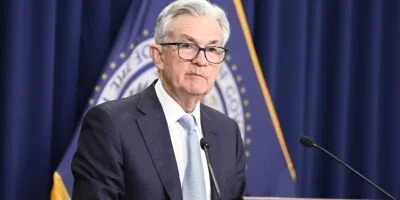The Perfect Protection of Prodding and Printing, Part I
This guy I know…
I have a friend named Ben who has always been very civic minded. Whenever there was a neighborhood bake sale he would call the health inspector to have it shut down; he couldn’t bear the thought of his neighbors’ health being at risk due to food from unlicensed kitchens. If he ever came upon children playing ball, he immediately took it from them and called their parents; his heart would burst with the thought of some innocent children risking injury in pursuit of something so meaningless and trivial to him as “points.” And when these same children were finally safe off of the streets, and they became anxious and restless at home and in school, he drafted the first law that required them to be medicated.
And if a new shop tried to open up in town, he would be the first to join the zoning committee so he could demand to know why, if there is an alleged desire for the prospective merchant’s wares, is there not already a store selling it? He was skeptical about wasting his town’s precious resources and land. And furthermore, if the product is so desirable, shouldn’t the town be protected by licensing and inspecting the new shop? Why risk some new product that hasn’t met the minimum standards of the community as a whole, and a businessman whose only concern is profit?
His older brother, Alan, when he was a much younger lad, used to say that it “was in the self interest of every businessman to have a reputation for honest dealings and a quality product.” Why, he would argue, the reputation becomes valuable enough to be considered productive capital; why do you think companies care so much about their brands and logos. Ordinarily, “newcomers entering the field cannot compete immediately wit the established, reputable companies, and have to spend years working… to earn an equal reputation[i].” People have an incentive not to poison their neighbors – they have to see them everyday! And businessmen have an incentive not to injure their customers – they would like to see them every day!
Alan always believed that incentive and reward were a better means of human motivation than force and fear, and that when people were allowed to make their own choices and take their own risks they would reward those who serve them, and punish those who cheated, all more effectively and justly than some “snooping bureaucrats[ii].” Besides, minimum standards soon become maximums when the incentive to exceed them is removed, and when the stamp of quality can be more easily purchased from an unscrupulous inspector than earned by repeated quality service, who would risk it? Demands are made of new products to prove their worth, not on the market, but in a hearing room, so who would risk an introduction? Safer just to continue to sell what is approved, and cozy up to the regulators to muscle out the competition. Ben would just scoff, and remind Alan that everyone they knew was a simpleton, and could not seriously be expected to protect themselves from the dangers, and dangerous people, of the world.
Yes, no one could doubt his bona fides; he certainly had a boundless energy, an overdeveloped conscience, and a mind sharp and willing to tackle any problems he saw in his fellow man. But presently he has been losing quite a bit of sleep over the recent financial crises and the associated freezes of both consumer lending and spending. Being an economist, I tried to explain that the economy is like a hamster in a wheel that has been forced to run very hard without rest for quite a while. It just needs to take a break and catch its breath. Once the businesses and jobs that are no longer needed or desired are allowed to give way to those that are, things will be getting back on track. Then I saw that look in his eye.
“That lazy, malingering hamster doesn’t need a nap, it needs some Ritalin!” he shouted, and ran off down the street to his house, whereupon he immediately grabbed up his computer, printer, some cartridges of ink, and headed down into the basement.
Next Week: Part II
[i] Rand, p. 127
[ii] Rand, p. 130
Rand, A. (1967). Capitalism: The Unknown Ideal. New York City, Signet
Photo Credit: Stephen Morton / Bloomberg News








